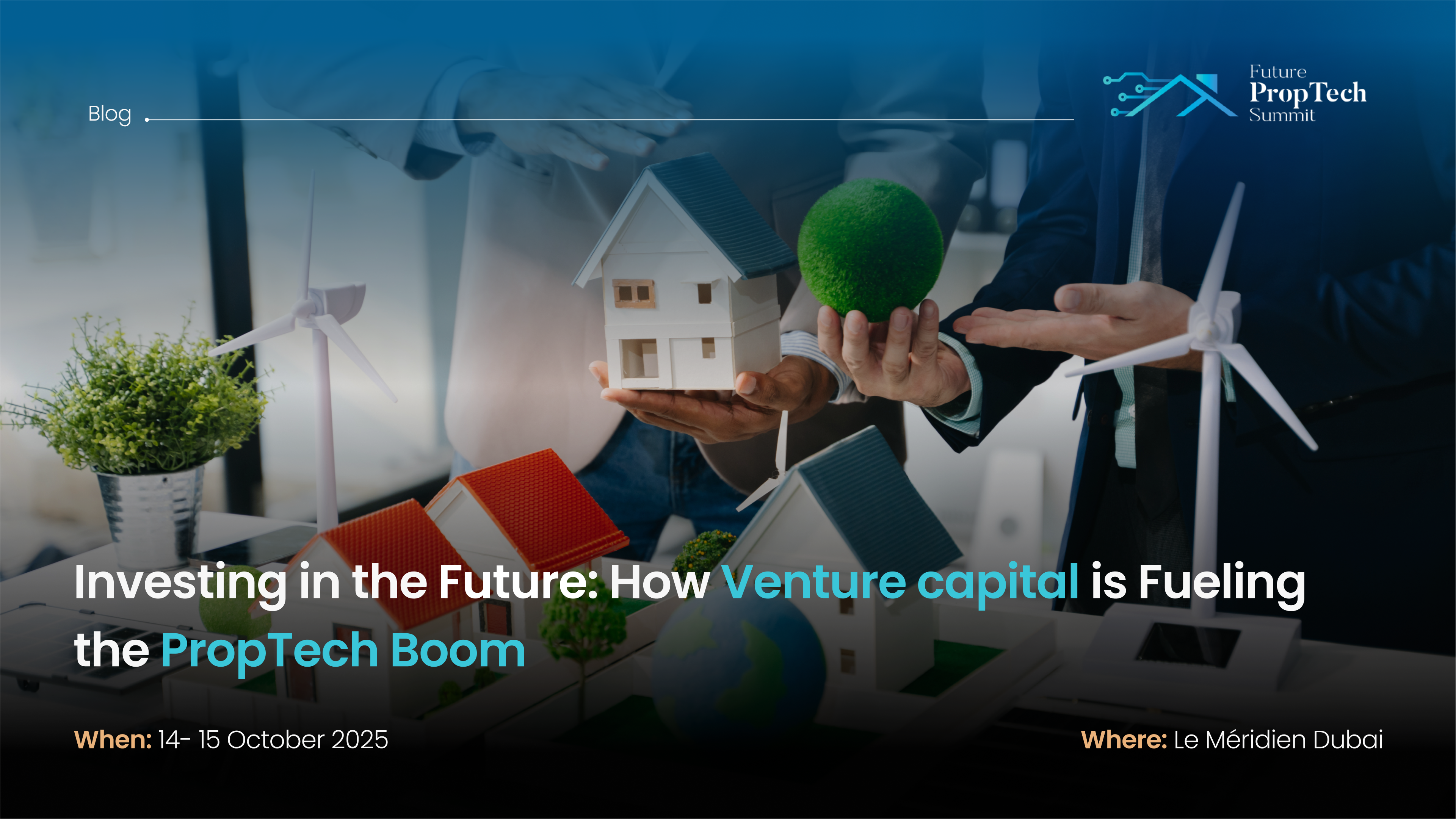Investing in the Future: How Venture capital is Fueling the PropTech Boom
By Isha Qureshi • Mon Jun 30 2025

The global real estate industry is undergoing a pivotal transformation. Once characterized by manual processes, outdated infrastructure, and slow adoption of technology, real estate is now entering a new era driven by the rapid rise of Property Technology (PropTech) and accelerated by venture capital investment.From smart buildings and digital transactions to AI-driven analytics and sustainable construction, PropTech is revolutionizing how real estate is built, managed, sold, and financed. The sector is no longer a niche innovation area; it's now central to the modernization of the entire built environment.
In Q1 2025 alone, global VC investment in PropTech-related companies topped $2.06 billion, spanning over 200 deals. This continued momentum reflects a strong appetite for scalable, tech-enabled real estate solutions.Recent data also shows that investors are becoming more strategic. Rather than pursuing generic solutions, they are targeting companies with proven operational efficiencies, AI integration, ESG alignment, and long-term recurring revenue potential.
Venture capitalists are narrowing their focus to high-potential sub-sectors within PropTech. Among the most popular investment areas are:
AI and Predictive Analytics
VCs are doubling down on artificial intelligence to power real-time property insights, dynamic pricing, risk forecasting, and tenant experience optimization. In fact, more than 50% of early-stage PropTech funding in Q1 focused on startups incorporating AI as a core feature.
Construction and Infrastructure Tech
Startups focused on modular building systems, construction automation, and smart infrastructure management are attracting significant capital. These technologies improve cost-efficiency, reduce timelines, and align well with sustainability mandates.
Sustainability and Climate-Tech
With ESG metrics becoming critical to real estate portfolios, investors are backing PropTech companies that reduce energy consumption, monitor emissions, and enable climate-resilient asset management.
FinTech and Marketplaces
Digital platforms for property transactions, financing, leasing, and fractional ownership are rapidly scaling across geographies. These models often feature subscription-based or transaction-driven revenue making them highly attractive for long-term returns.
Why PropTech Appeals to Investors
What makes PropTech especially appealing from a venture capital standpoint is its unique combination of market opportunity and digital inefficiency. Real estate is one of the largest global sectors, yet it remains among the least digitized. That disparity creates a rare opening for disruption.VCs are drawn to PropTech because it offers Large-scale market transformation potential, Low digital adoption baseline, Scalable business models, Recurring revenue opportunities, Cross-border scalability, Operational durability in volatile markets.Even during broader VC pullbacks, PropTech has maintained momentum proving its relevance in both bullish and bearish cycles.
As we move further into 2025, PropTech is shifting from experimentation to essential infrastructure. Technologies once seen as optional like AI-powered asset management, digital twin modeling, and real-time building data systems are fast becoming industry standards.
At the same time, VC interest is expanding beyond front-end applications to include foundational platforms and backend systems powering the real estate lifecycle. These include cloud-based property management systems, tenant experience platforms, and digital compliance tools.
What’s next? Expect even greater convergence between PropTech and other verticals ,like FinTech, CleanTech, and IoT ,creating ecosystems that redefine how urban environments are planned, operated, and experienced.
PropTech is no longer an emerging niche; it is a strategic pillar of the future real estate landscape. With billions flowing into AI, sustainability, infrastructure, and marketplace innovation, venture capital is not just funding PropTech’s rise, it is actively shaping the future of how the world lives, works, and builds.For stakeholders across the value chain developers, investors, cities, and operators the message is clear: now is the time to engage with PropTech, not as a trend, but as a catalyst for long-term transformation.
The verdict is clear: PropTech is no longer a trend, it's an investment category of the future. And venture capital is powering its rise, one startup at a time.